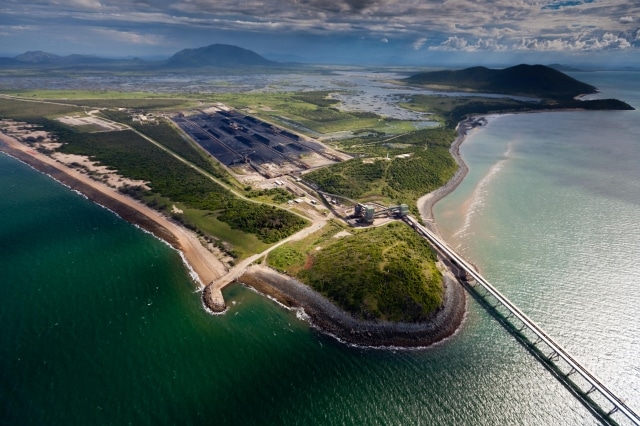The Institute of Pubic Affairs holds the unofficial and dubious title of being Australia’s leading climate science denial organisation.
The so-called “think tank”, based in Melbourne, promotes fringe views on climate science from non-experts while attacking renewable energy.
Now if you were a coal company, you’d be concerned how for many decades scientists have linked the burning of your product to climate change.
You might be worried too that investment in renewable energy is going through the roof while the cost of power from aforementioned renewables is going in the opposite direction.
A short-sighted coal company might decide to start launching critiques of the science of climate change and start having a crack at renewables while at the same time selling its product as some sort of silver bullet that can solve global poverty with a single well-aimed shot.
This brings us back to the Institute of Public Affairs (IPA) and its latest report, titled: “The life saving potential of coal: How Australian coal could help 82 million Indians access electricity”. It could have been written by the coal industry.
The report’s headline figure focuses on the huge coal reserves in Queensland’s as-yet-untapped Galilee Basin. The report looks at coal projects being proposed by GVK Hancock and Adani that could mine and export 120 million tonnes of coal annually to be exported through an expanded coal port at Abbot Point (pictured) and then burned in Indian power stations.
The IPA sent out copies of the report to Australian MPs and its author, the IPA’s director of innovation and energy policy, Brett Hogan, got a slot on the opinion pages of the Murdoch-owned The Australian newspaper to push his study. Hogan wrote:
New research from the IPA released today demonstrates how increasing Australian coal exports from the Galilee Basin by up to 120 million tonnes annually could allow at least 82 million Indian people to access a regular and reliable source of electricity each year. Coal is the world’s cheapest and most reliable source of electricity.
Coal, of course, is only “cheap” if you ignore all of the externalized health and social costs from mining it and burning it. The cancer-causing building material asbestos was “cheap” too, until it was banned. In The Australian, Hogan claimed environmental campaigners and “coal activists” were trying to deny Indian people a “higher standard of living”. He wrote”
The morality of seeking to deny people in other countries the privileges that we enjoy here, when we have to ability to help out, is deeply suspect.
This idea that coal is the answer to poverty is a talking point that has been developed by the coal industry and faithfully echoed by several Australian government ministers, including the Prime Minister Tony Abbott and his Treasurer Joe Hockey.
Also “deeply suspect” is Hogan’s figure of 82 million. In the report, Hogan explains the figure comes from a simple calculation of how much electricity you might get from 120 million tonnes of coal, divided by the amount of electricity Indians might expect to consume per person.
The figure seems to ignore transmission losses (the power lost as electricity travels from power stations along transmission lines to consumers), which, according to World Bank figures, are at 21 per cent in India. That alone brings the IPA figure of 82 million down to 65 million, without allowing for how much of that power is used by businesses rather than residential customers.
Not surprisingly the IPA report left out other key factors in its assessment of coal’s “life saving potential”. Not mentioned were the estimated 80,000 to 115,000 Indians killed every year from coal-fired power plants. Neither did Hogan consider the impacts of climate change on India, which scientists say is particularly vulnerable to extreme weather events such as flooding, droughts and heat waves.
The country’s Earth Sciences Minister Harsh Vardham said he believed the recent heat wave in the country that claimed 2500 lives was a symptom of climate change. There are also concerns that climate change will have a disproportionate impact on India’s poor and marginalized groups.
Like almost all think tanks in Australia, even though donations to the IPA are in many cases tax deductible the Melbourne-based organisation does not reveal its funders. There’s no law that says they have to either. But the IPA has in recent years teamed-up with mining magnate Gina Rinehart, Australia’s richest person and one of the world’s richest women.
Rinehart has a direct stake in Galilee Basin coal. Rinehart’s mining company Hancock Prospecting retains a 21 per cent share in two of the three Galilee Basin coalmines being proposed by GVK.
The IPA has worked with Rinehart’s lobby group, Australians for Northern Development and Economic Vision, to push for a lowering of taxes and regulations in the country’s north to promote mining projects. IPA executive director John Roskam confirmed to Fairfax media in 2013 that Rinehart had provided funding to the IPA.
The IPA also gave Rinehart a “Free Enterprise Leader Award” in 2013 during its 70th anniversary dinner, attended by a who’s who of Australian conservative politics including Abbott and Rupert Murdoch.
But has the IPA’s decision to go all out in support of Galilee Basin coal come too late?
The most advanced of the Galilee Basin coal projects is the giant Carmichael Mine – a plan that would dig 60 million tonnes of coal a year for export. In recent days, The Guardian has reported that key Adani contractors had been dismissed, leaving another questionmark hanging over the viability of the project.
Image credit: Tom Jefferson/Greenpeace
Subscribe to our newsletter
Stay up to date with DeSmog news and alerts






